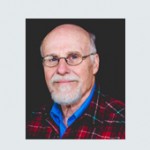- 7 Jul, 2016
- 0
- Russell Vandenbroucke
- PeaceVoice
Liberty and Justice for All?
“Three weeks I spent in Israel and Palestine looking, listening, and learning have given me a new perspective on America’s Declaration of Independence from colonial rule and our 4th of July celebration of founding principles and ideals.”
Russell Vandenbroucke
Published in: Counterpunch, Gilmer Free Press
Date: July 8,10,2016
700 Words
For the full article:
Liberty and Justice for All?
700 Words
By Russell Vandenbroucke
Three weeks I spent in Israel and Palestine looking, listening, and learning have given me a new perspective on America’s Declaration of Independence from colonial rule and our 4th of July celebration of founding principles and ideals.
Israel and Palestine, together about the size of Massachusetts, routinely prove that violence always perpetuates itself in a circle without a beginning and also without, it seems, an end. Whether authorized by the state or enacted by fanatics who assume they are sanctioned by the self-righteous certitude of revenge, repeated violence numbs our sense of outrage. It also tempts victims to ascribe collective responsibility for individual deeds.
The lived experience and perspective of a new friend, Dr. Saida Affouneh, Director of the E-learning Center of An Najah National University, challenges my tacit American belief that we are all created equal and endowed with inalienable rights. Near the end of my trip, over fruit drinks in Nablus, the ancient Palestinian city once home to the Bible’s Good Samaritan, she asked about my preconceptions before visiting the Occupied Palestinian Territories, anticipating they might be those of an average American.
I admitted that I expected to encounter mass poverty, anti-American attitudes, and lives bursting with religion and fury. And, yes, I had promised my son to be especially vigilant while traveling in, we presumed, a dangerous place.
“And what have you experienced?”
“None of this. The popular images are grossly misleading.” In Bethlehem, strangers warned me that my backpack was unzipped: They didn’t want anything to fall out or be stolen in a crowded market.
Affouneh earned her Ph.D. at the University of Exeter in England. There, a man had tried to snatch her scarf. He was arrested and charged. In the end, she forgave her attacker rather than persist with her complaint. “When I have the chance, I try to live with people who are not Palestinian, not Muslim. I want to have my views challenged so I can learn and grow.”
Wanting her children to experience a new culture, she took Ibrahim, then five, to see Santa Claus in England. He knew he could ask for anything. “I would like 1,000 footballs, Santa.”
“That’s rather a lot for one child.”
“Oh not for me. For the children back home who play soccer by kicking stones.”
When Iyas, her oldest child, was 12 the family hosted a visitor who was Christian and older. The two boys debated theology until Iyas suggested, “why don’t we focus on the things we agree upon about Jesus rather than those we do not.” His mother hopes he will win a scholarship to an American university “with a lot of diversity. I want him to be a critical thinker and problem solver.”
Affouneh also recounted a chance airport encounter some years ago. Near the end of an engaging conversation, she learned the other traveler was returning home, to Israel. Where had her parents been born? The United States. And her grandparents? The United States.
Affouneh’s own parents and grandparents were born in Palestine, but she cannot visit ancestral lands in what is now Israel. Despite having forebears in Jerusalem thousands of years ago, she cannot visit there without advance permission by the Israeli military, which is usually granted for 24 hours only, if at all. Affouneh laments that she and the stranger would not have connected as human beings if they had begun their conversation with their national identity or geographic heritage. The Law of Return gives Jews throughout the world the right to Israeli citizenship, but Palestinians have no parallel Right to Return to family homes or olive groves located in what is now Israel.
She knows the preconceptions I confessed are not unusual and asks me to tell others about my experience in Palestine:
“Our children deserve to play. They deserve a good future, a good education, a better life.
“We don’t want our children killed.
“We don’t send our children off to be killed.”
“We are not terrorists.
“We want to live our lives.”
In the aftermath of the 4th of July celebration of our independence, freedom, liberty and justice, I wonder if these are universal rights all humans deserve. Or, instead, are they limited American ones?
~~~~~~~~~~~~
Russell Vandenbroucke is director of the Peace, Justice & Conflict Transformation Program at University of Louisville and is syndicated by PeaceVoice.
AVAILABLE FOR REPRINT. Copy and use freely. Please help PeaceVoice by notifying us when you use this piece: PeaceVoiceDirector@gmail.com
© 2023 PeaceVoice

peacevoice